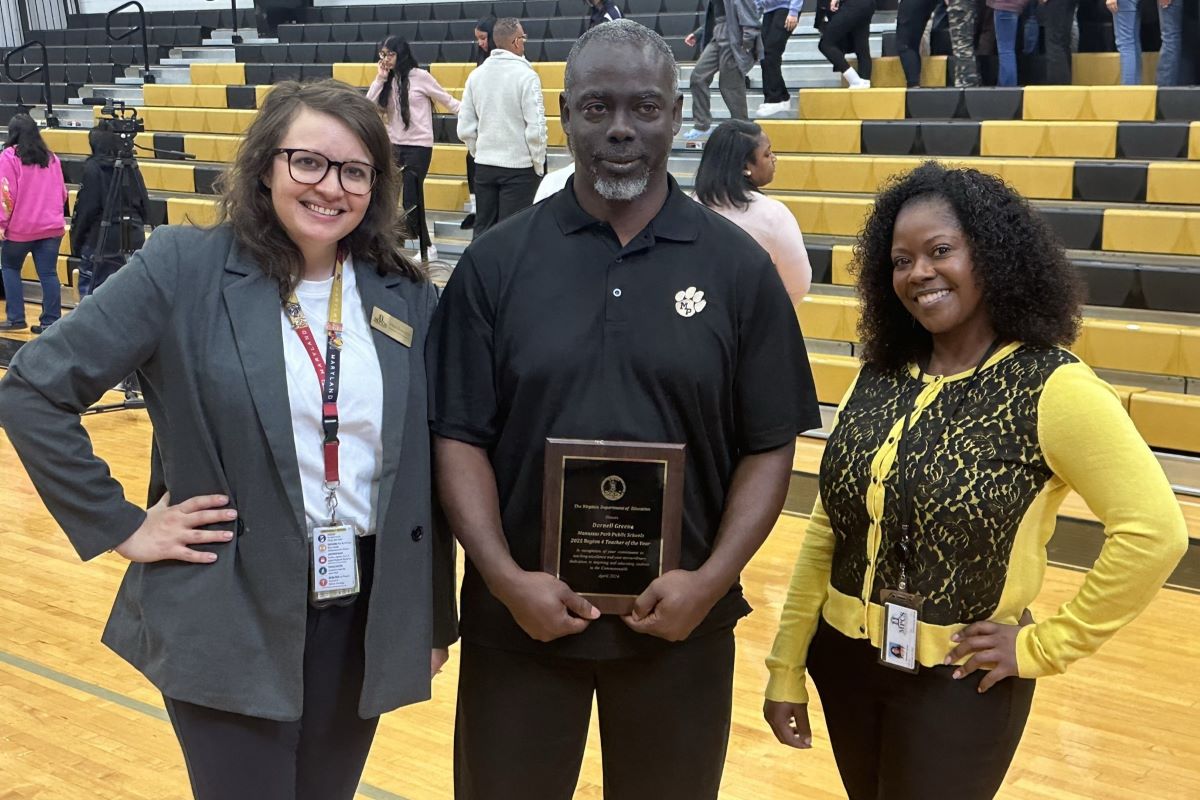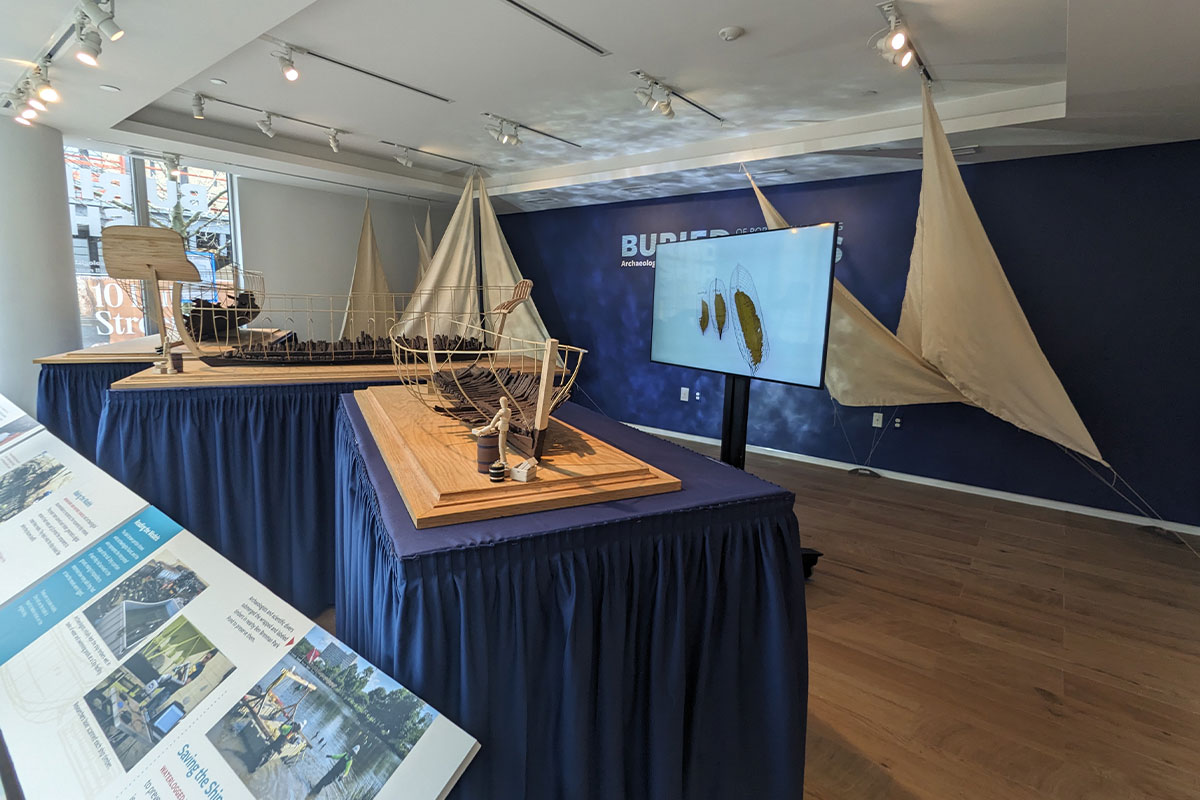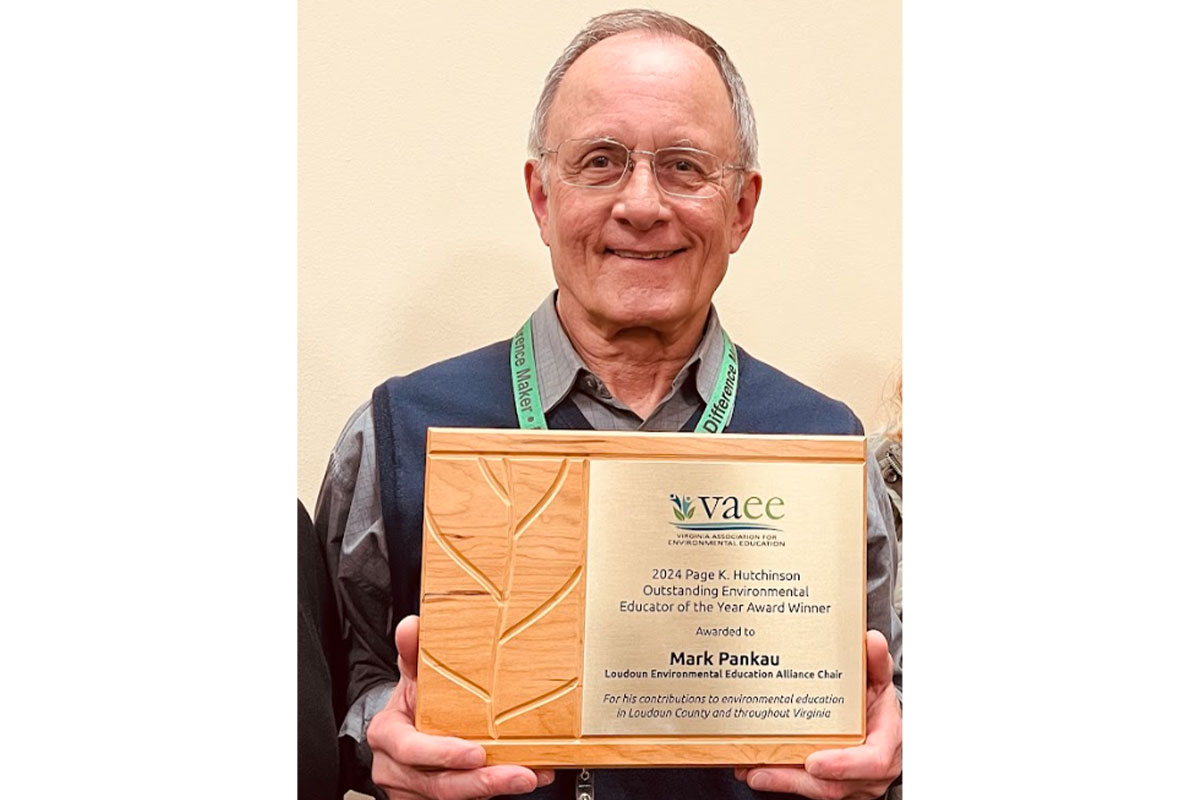
Addie Schafer had just closed out a successful first weekend of Woodgrove High School’s spring musical, Little Shop of Horrors. That Wednesday, she took her drama students into DC to compete in a Shakespeare festival competition. The field trip would turn out to be the very last of the school year in Loudoun County. By the next morning, school was canceled countywide as the coronavirus picked up steam.
“It definitely was shocking. We had no idea [school would be canceled] the day before,” recalls Schafer of the announced closures on March 12. “I left school on Wednesday. We had just come back from the field trip … I was thinking, ‘There’s a chance we could be getting school closures, but I doubt it’s happening anytime soon. And then, 5 a.m. the next morning, we got the call school was closed at least through nearly the end of March. And things have been changing every single day since then.”
Like thousands of teachers across Northern Virginia and the entire state, Schafer found herself transitioning to a virtual teaching model almost overnight, but it hasn’t been without its challenges.
It’s a balancing act, says Schafer: “How do I try and make this engaging for students, exciting for students, but then also keep in mind that some of these students have had to take on more work hours to help their families with part-time jobs, or are having issues connecting online? I am trying to keep positive, but there are moments where the reality sinks in and I think, ‘Wow, here we are and here is this reality that we don’t know when it’s going to end,’ and there are a lot of implications to that.”
Losing that in-person connection has been especially hard, she says, for her seniors. “It’s definitely been hard to realize I won’t be able to teach the seniors again. As a theater teacher, you spend probably more time [with the students] than the average classroom teacher because of all the after-school stuff. I made really strong connections with these students.”
Schafer, who also has a younger sister who is a senior in high school, says she’s reminded her that “[teachers] are equally in this boat with you, trying to navigate these waters. What is just the right amount of communication, of work, of trying to just also be a human and comfort each other? There’s this kind of impending doom of: When is this going to end? When will things return to normalcy, if that will ever happen? And what are the long-term effects?”
As what would have been the end of the school year comes to a close in June, it remains to be seen what school will look like in the fall. But Schafer says she’s trying to keep a positive attitude for herself, for her students and for parents—who have found themselves in an unexpected teacher role the last few months.
“We don’t just want to hear assignment questions,” she says. “I asked my students to share a piece of good news that’s happening in their life. We want to hear even the little things of what’s going on, and remind the parents that we’re here to work with them as a team. They’re not alone in trying to navigate their own child’s progress … I’ve gotten a lot of really kind emails from parents. It’s nice to hear, ‘My kid misses you.’”
COVID-19 Impact:
There are approximately 420,000 students enrolled in K-12 public schools across Northern Virginia. Gov. Northam issued an executive order on March 23 closing all schools through the end of the academic year.
This post originally appeared in our June/July 2020 print issue. For more local education coverage, subscribe to our Education newsletter.




